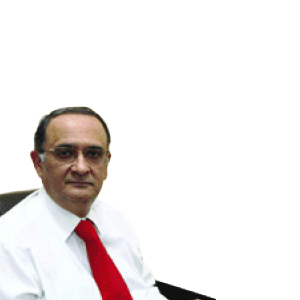The Indian pharmaceutical industry is estimated to grow at 20 percent compound annual growth rate (CAGR) over the next five years, according to India Ratings. Industrial advances, involvement of MNC’s seeking clinical solutions are making the Indian pharma industry grow over 15 percent per annum between 2015 and 2020; this is expected to outperform the global pharma industry. Over 15000 of the workforce of the clinical research industry in India which counts to 25 percent are trained by Institute of Clinical Research India (ICRI).
Having trained one-fourth of the work force, ICRI happens to be one of the major educational institutes preparing managerial professionals in clinical research who are present in top leads in MNC’s. The reason ICRI started in 2004 was TRIPS agreement and the patent act passed by Indian parliament in 2004 and 2005 respectively. One single element that makes the institute stand strong is the training and learning methodology which brings employability and career opportunities to the students. Apart from the theory, ICRI has put much emphasis on the practical application, investigations and research to infuse skills which would cater them the best jobs in this field. The training modules prepared cover the whole spectra of issues critical to the operation within the biopharmaceutical and clinical trial industry. Further to the methodology, the students are demonstrated on a personal level the process related to clinical trials. When a drug is introduced in the pharmaceutical market, it has to undergo tests under regulators. Through series of phases, the drug is examined and approved. Thereafter, doctors and practitioners are introduced to the drug, after application on patients and feedbacks are recorded. Then, a research report is prepared on the same, analyzed for the regulators. “We have got the cream among the people in the clinical research diaspora as our faculty members,” pinpoints Duggal, Founder and Chairman, ICRI. It is notable that the institute has a group of five expert faculties; each of them has an experience of 8-10 years in their field of interest which makes it more beneficial for the students. With wide experiences of all the clinical trial phases, the institute conducts classes and workshops taken by industrial professionals as visiting faculties such as Dr. SK Gupta, Dr. Hari Gautam, Dr. Moin Don delivering lecture to students. Not only do these lectures help the students acquire knowledge, the consultancy projects and trainings undertaken by the institute’s training specialist to leading MNC’s also engage students to hone their skills required in fieldworks. The clinical research is a much promising profession which branches off into various positions, to name a few are Clinical Research Associate (CRA), Clinical Research Manger (CRM), Clinical Research Coordinator, Business Development Manager, Investigator, Project manager, Data Manager, Programmer, Statistician and Medical writer. The entry level jobs offered bags around Rs. 4.5 lakh for students securing a post-graduate degree, Rs. 1.8 lakh for students securing a diploma on the same. Major recruiters such as Novo Nordisk, GSK, WIPRO, TCS and many more visit the campus every year for placements setting a 100 percent placement record. ICRI has introduced a very industry relevant curriculum under the suggestion of eminent educationist. The industry flourishing to the fullest and institutes such as ICRI together has made this area of study upswing in demand among students taking place of career out of most conventional science subjects. ICRI offers MSc, MBA, diploma courses and PhD in clinical research and management. The PhD program offers students a wide variety of areas to be worked on in academic research and teaching assignments. The ‘tag’ of being the first of its kind comes with an added pride but the survival narrates the real story. ICRI is regarded as the pioneer to be the first clinical research educational institute in India producing top management professionals in clinical research.
Speaking to SR Duggal, he mentioned about the country’s hidden growth in clinical trial ten years back and the need to avail this growth brought him to have found this institute in 2004 with a few people. ICRI globally has brought ACRP USA, DIA, USA, Medical University of South Carolina, Cranfield University UK, ICR UK, SCRIP and a number of other journals in clinical research to India.
In the course of time, this institute has encrypted a name con- ducting the first national and international level conference in the coun- try, creating awareness about India by partici- pating in numerous fairs globally and publishing the first book on clini-cal research in India by Dr S.K. Gupta, Director, Dean, ICRI. The premier in- stitute had tied up with Accenture for in-house training, Dr. Reddy’s lab and in terms with Wipro in order to edu- cate in-house students to improve sub- ject matter knowledge and expertise to secure the best of all developments engaged in a global platform and are already.
The current growth of the industry is $2 billion per year and as incremental business organizations such as Cognizant, Wipro, TCS take up contract from European and western countries creating employment opportunities and grow into a major industrial sector in the next ten years. Apart from the economic growth, the country is capable of producing better drugs from trials inducing more development in the health sector increasing self sustaining ways for the country.
Having trained one-fourth of the work force, ICRI happens to be one of the major educational institutes preparing managerial professionals in clinical research who are present in top leads in MNC’s. The reason ICRI started in 2004 was TRIPS agreement and the patent act passed by Indian parliament in 2004 and 2005 respectively. One single element that makes the institute stand strong is the training and learning methodology which brings employability and career opportunities to the students. Apart from the theory, ICRI has put much emphasis on the practical application, investigations and research to infuse skills which would cater them the best jobs in this field. The training modules prepared cover the whole spectra of issues critical to the operation within the biopharmaceutical and clinical trial industry. Further to the methodology, the students are demonstrated on a personal level the process related to clinical trials. When a drug is introduced in the pharmaceutical market, it has to undergo tests under regulators. Through series of phases, the drug is examined and approved. Thereafter, doctors and practitioners are introduced to the drug, after application on patients and feedbacks are recorded. Then, a research report is prepared on the same, analyzed for the regulators. “We have got the cream among the people in the clinical research diaspora as our faculty members,” pinpoints Duggal, Founder and Chairman, ICRI. It is notable that the institute has a group of five expert faculties; each of them has an experience of 8-10 years in their field of interest which makes it more beneficial for the students. With wide experiences of all the clinical trial phases, the institute conducts classes and workshops taken by industrial professionals as visiting faculties such as Dr. SK Gupta, Dr. Hari Gautam, Dr. Moin Don delivering lecture to students. Not only do these lectures help the students acquire knowledge, the consultancy projects and trainings undertaken by the institute’s training specialist to leading MNC’s also engage students to hone their skills required in fieldworks. The clinical research is a much promising profession which branches off into various positions, to name a few are Clinical Research Associate (CRA), Clinical Research Manger (CRM), Clinical Research Coordinator, Business Development Manager, Investigator, Project manager, Data Manager, Programmer, Statistician and Medical writer. The entry level jobs offered bags around Rs. 4.5 lakh for students securing a post-graduate degree, Rs. 1.8 lakh for students securing a diploma on the same. Major recruiters such as Novo Nordisk, GSK, WIPRO, TCS and many more visit the campus every year for placements setting a 100 percent placement record. ICRI has introduced a very industry relevant curriculum under the suggestion of eminent educationist. The industry flourishing to the fullest and institutes such as ICRI together has made this area of study upswing in demand among students taking place of career out of most conventional science subjects. ICRI offers MSc, MBA, diploma courses and PhD in clinical research and management. The PhD program offers students a wide variety of areas to be worked on in academic research and teaching assignments. The ‘tag’ of being the first of its kind comes with an added pride but the survival narrates the real story. ICRI is regarded as the pioneer to be the first clinical research educational institute in India producing top management professionals in clinical research.
Speaking to SR Duggal, he mentioned about the country’s hidden growth in clinical trial ten years back and the need to avail this growth brought him to have found this institute in 2004 with a few people. ICRI globally has brought ACRP USA, DIA, USA, Medical University of South Carolina, Cranfield University UK, ICR UK, SCRIP and a number of other journals in clinical research to India.
In the course of time, this institute has encrypted a name con- ducting the first national and international level conference in the coun- try, creating awareness about India by partici- pating in numerous fairs globally and publishing the first book on clini-cal research in India by Dr S.K. Gupta, Director, Dean, ICRI. The premier in- stitute had tied up with Accenture for in-house training, Dr. Reddy’s lab and in terms with Wipro in order to edu- cate in-house students to improve sub- ject matter knowledge and expertise to secure the best of all developments engaged in a global platform and are already.
The current growth of the industry is $2 billion per year and as incremental business organizations such as Cognizant, Wipro, TCS take up contract from European and western countries creating employment opportunities and grow into a major industrial sector in the next ten years. Apart from the economic growth, the country is capable of producing better drugs from trials inducing more development in the health sector increasing self sustaining ways for the country.



